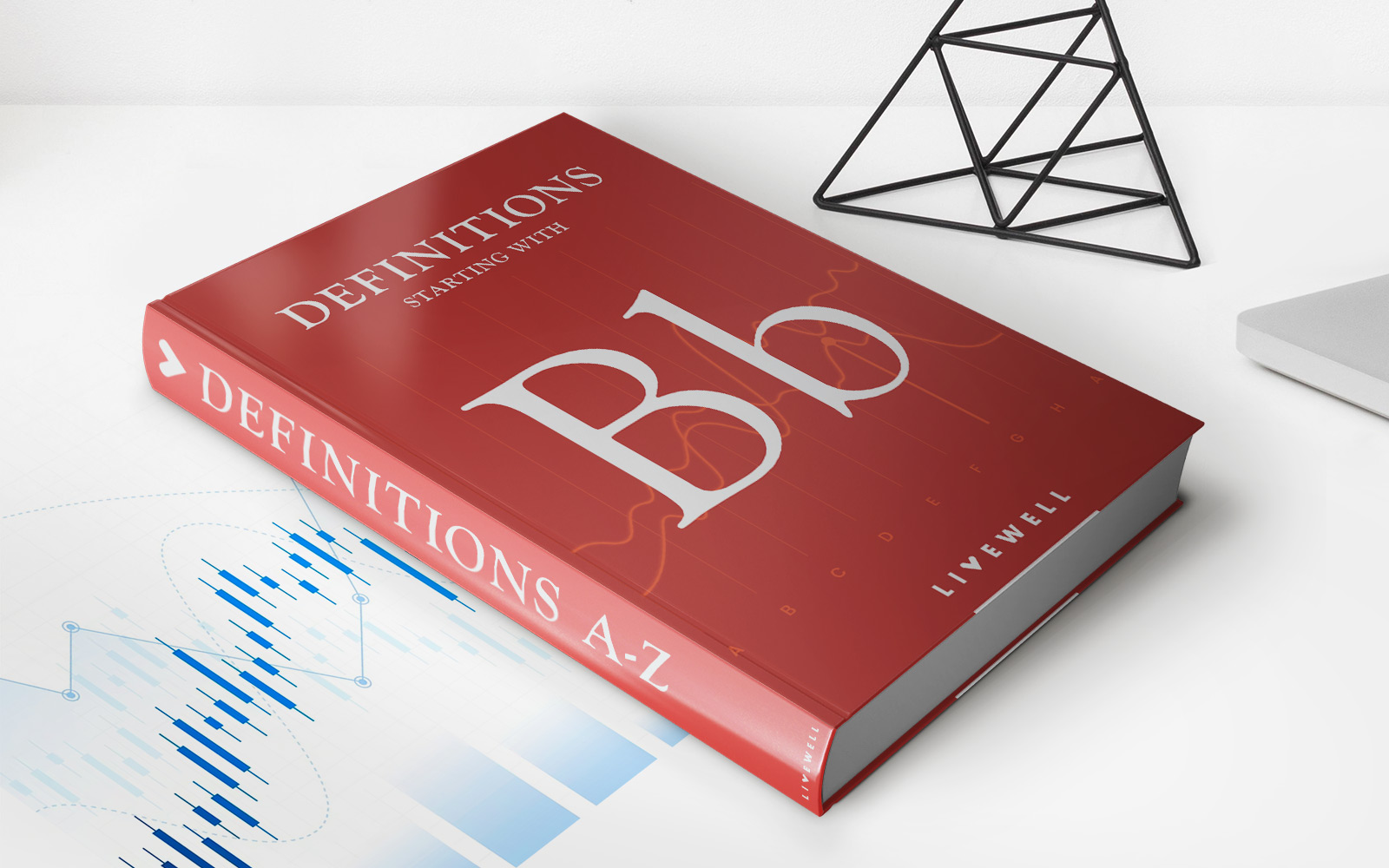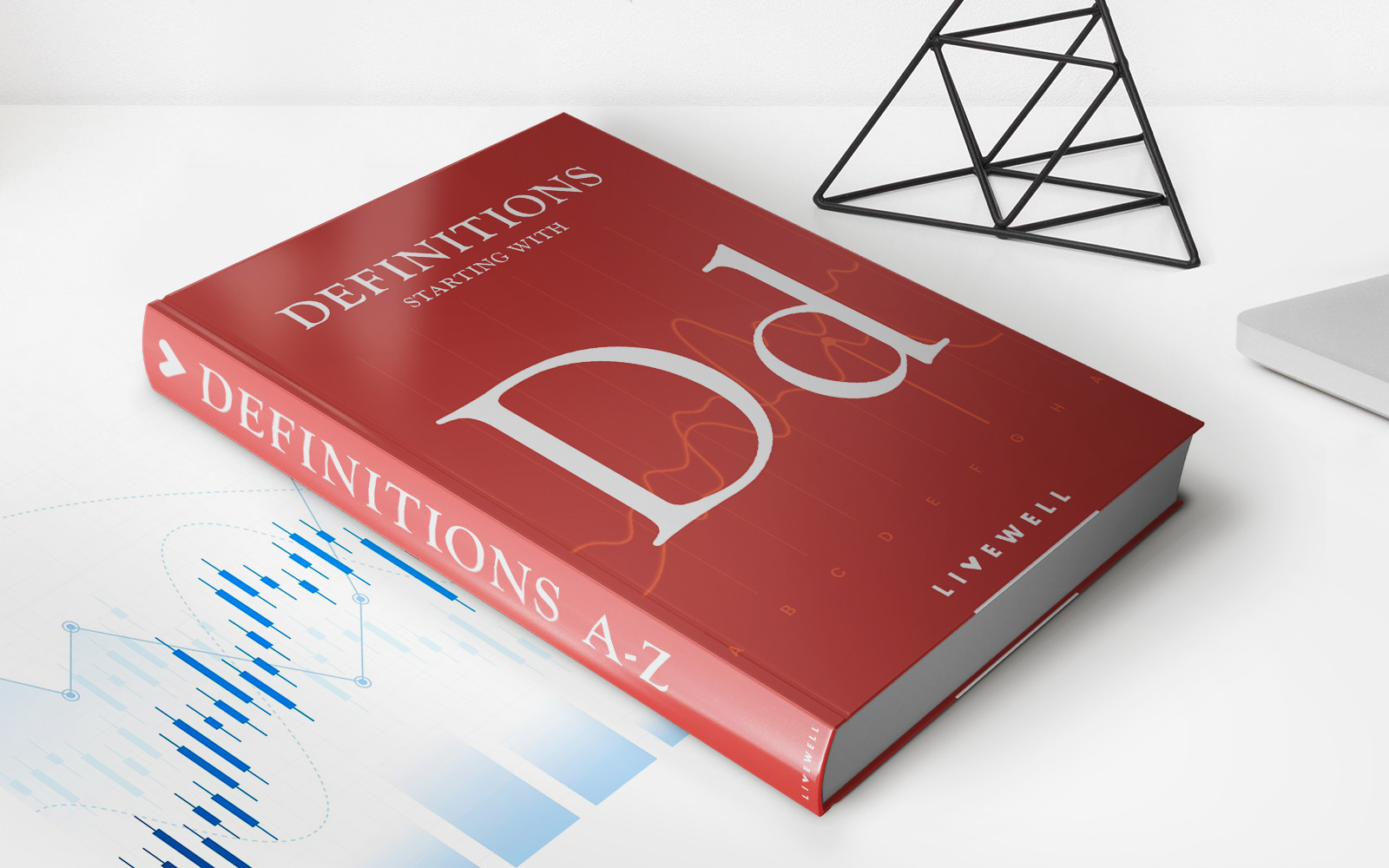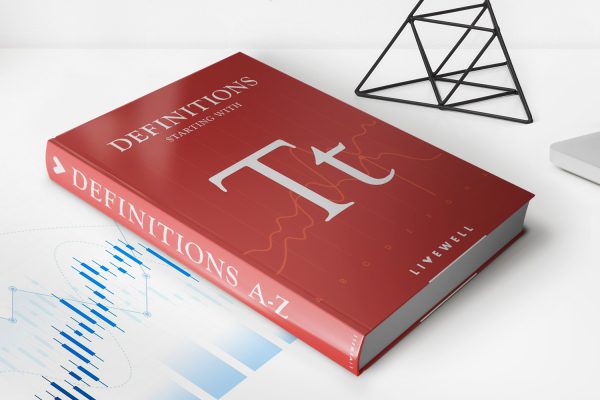

Finance
Who Needs Disability Insurance?
Modified: December 29, 2023
Discover the importance of disability insurance and how it can provide financial security in the face of unexpected circumstances. Protect your finances with disability insurance.
(Many of the links in this article redirect to a specific reviewed product. Your purchase of these products through affiliate links helps to generate commission for LiveWell, at no extra cost. Learn more)
Table of Contents
Introduction
Disability insurance, a type of insurance that provides financial protection in the event of an individual’s disability, is often overlooked or misunderstood. However, it is an essential component of a comprehensive financial plan. Life is unpredictable, and accidents or illnesses can happen to anyone, which can result in temporary or permanent disability. Without disability insurance, the financial consequences can be devastating.
Disability insurance is designed to replace a portion of your income if you are unable to work due to a disability. It provides a safety net to ensure that you can continue to meet your financial obligations, such as paying bills, supporting your family, and maintaining your quality of life.
While many people assume that disability insurance is only necessary for physically demanding professions, the reality is that anyone who relies on their income to support themselves or their families can benefit from this type of insurance. Whether you are a working professional, a self-employed individual, a stay-at-home parent, or someone with pre-existing health conditions, disability insurance offers a crucial layer of protection.
In this article, we will explore the different scenarios in which disability insurance is essential. We will discuss the importance of disability insurance for professionals and self-employed individuals, parents and caregivers, and individuals with pre-existing health conditions. Additionally, we will outline key considerations to keep in mind when choosing disability insurance to ensure you secure the right coverage for your needs.
Ultimately, the purpose of disability insurance is to provide peace of mind. It allows you to face the uncertainties of life with confidence, knowing that you and your loved ones will be financially secure in the event of a disability. So, whether you’re just starting your career, raising a family, or navigating health challenges, disability insurance is a valuable tool that should not be overlooked.
Understanding Disability Insurance
Disability insurance is a type of coverage that provides income replacement if an individual becomes disabled and is unable to work. It is designed to protect individuals from the financial burden that can arise from a disability. This type of insurance can help cover expenses such as mortgage or rent payments, utility bills, medical expenses, and daily living costs.
There are two main types of disability insurance: short-term disability (STD) and long-term disability (LTD) insurance. Short-term disability insurance typically provides coverage for a shorter duration, usually up to 6 months, while long-term disability insurance offers coverage for an extended period, often until retirement age.
In order to qualify for disability benefits, an individual must meet the definition of disability as outlined in their insurance policy. This definition can vary between policies but generally requires individuals to demonstrate that they are unable to perform the essential duties of their occupation due to an injury, illness, or medical condition.
It’s important to note that disability insurance does not typically cover every type of disability. Some policies may exclude certain pre-existing conditions or disabilities resulting from self-inflicted injuries or illegal activities. It’s crucial to carefully review the terms and conditions of your policy to understand what is covered and what is excluded.
Disability insurance policies can also differ in terms of the waiting period, or elimination period, which is the waiting period before benefits are paid. This waiting period can range from a few days to several months, and a longer waiting period often results in lower premium costs.
Another factor to consider when choosing disability insurance is the percentage of income that will be replaced in the event of a disability. Most policies provide coverage for a percentage of your pre-disability earnings, typically ranging from 50% to 70%. Additionally, disability insurance benefits are generally tax-free, providing further financial relief during a challenging time.
Understanding the details of your disability insurance policy is crucial to ensure that you are adequately covered and protected. Consulting with a reputable insurance agent or financial advisor can help you navigate the various options available and make an informed decision that suits your individual needs.
By having a thorough understanding of disability insurance, you can make a well-informed choice to protect yourself and your loved ones from the potential financial hardships that can arise from a disability.
Determining Your Need for Disability Insurance
Not everyone needs disability insurance, but it is essential for individuals who rely on their income to support themselves or their families. Disability insurance provides a financial safety net if you are unable to work due to a disability, ensuring that you can continue to meet your financial obligations and maintain your quality of life. So how do you determine if you need disability insurance? Here are some factors to consider:
- Income: If you rely on your income to cover your living expenses, disability insurance is crucial. It ensures that you can continue to support yourself and your loved ones, even if you are unable to work due to a disability.
- Dependents: If you have dependents, such as children or elderly parents, who rely on your income for their financial well-being, disability insurance is even more important. It provides the necessary funds to support your dependents and ensure their needs are met.
- Savings: While having savings is essential, it may not be enough to sustain you in the long term if you are unable to work due to a disability. Disability insurance provides an additional layer of financial protection, allowing you to preserve your savings for other essential expenses or emergencies.
- Employer Benefits: Take into account the disability benefits provided by your employer. While some employers offer disability insurance as part of their benefits package, the coverage may be limited or may not extend beyond a certain time frame. Assessing the coverage provided by your employer can help you determine if additional disability insurance is necessary.
- Profession: Consider the nature of your profession. If you work in a physically demanding or high-risk occupation, such as construction or healthcare, the likelihood of a disability is higher. In such cases, disability insurance is crucial to protect your income and financial stability.
It’s important to evaluate your specific circumstances and assess the potential financial impact of a disability. Consider your monthly expenses, outstanding debts, and other financial obligations. Understanding your financial needs will help you determine the necessary amount of disability insurance coverage.
Remember, disability insurance should be tailored to fit your unique needs. Consult with a reputable insurance agent or financial advisor who can assess your situation and guide you in selecting the right disability insurance policy. They can help you understand the policy terms, coverage options, and any exclusions that may apply.
By carefully evaluating your financial situation, considering your dependents, assessing your occupation, and understanding the coverage provided by your employer, you can determine if disability insurance is the right choice for you. It is an investment in your financial security and peace of mind, protecting both your present and future well-being.
Professionals and Self-Employed Individuals
Professionals and self-employed individuals often have unique financial circumstances that make disability insurance a critical component of their overall financial plan. Whether you’re a doctor, lawyer, engineer, consultant, or business owner, protecting your income with disability insurance is paramount. Here’s why:
Income Protection: Professionals and self-employed individuals typically rely heavily on their income to cover personal and business expenses. If a disability prevents you from working, disability insurance ensures that you can continue to receive a portion of your income, allowing you to meet financial obligations and sustain your standard of living.
High-Earning Potential: Many professionals and self-employed individuals have invested significant time and resources into building their careers or businesses, often resulting in higher earning potential compared to average wage earners. Disability insurance protects this potential income stream by providing financial support if a disability prevents you from practicing your profession or running your business.
Long-Term Impact: A disability that takes you away from work for an extended period can have long-term financial consequences. Paying ongoing business expenses, maintaining professional licenses, or missing out on career advancement opportunities can severely hinder your financial stability and future prospects. Disability insurance helps mitigate these risks and provides a safety net during such challenging times.
Unique Occupational Hazards: Certain professions come with inherent risks or physical demands that increase the likelihood of disability. For example, surgeons may develop hand injuries that impair their ability to perform intricate procedures, while construction workers may experience accidents that prevent them from working. Disability insurance tailored to your profession can provide coverage specific to these occupational hazards.
When selecting disability insurance as a professional or self-employed individual, it’s important to consider the following:
- Own-Occupation Coverage: Look for policies that offer “own-occupation” coverage, which provides benefits if you are unable to perform the duties of your specific occupation, rather than any occupation. This ensures that even if you can work in a different field, you will still receive benefits if you cannot practice your chosen profession.
- Specific Coverage Needs: Consider any unique aspects of your profession that may require additional coverage. For example, if you rely heavily on your hands as a musician or an artist, seek a policy that includes coverage for hand-related disabilities.
- Policy Riders and Options: Evaluate the available policy riders and options to customize your coverage. Riders such as a cost-of-living adjustment (COLA) or a future purchase option (FPO) can ensure that your benefits keep pace with inflation and allow you to increase coverage in the future without additional underwriting.
By securing disability insurance tailored to your profession and individual circumstances, professionals and self-employed individuals can protect their income and maintain financial stability in the face of a disability. Consult with an insurance professional who specializes in disability insurance to explore the various options available and find the policy that best suits your needs.
Parents and Caregivers
Parents and caregivers play a vital role in their families, providing love, support, and financial stability. As someone responsible for the well-being of your children or dependents, it is crucial to consider the importance of disability insurance. Here’s why parents and caregivers need this type of coverage:
Income Protection: If you have children or dependents who rely on your income, disability insurance provides a safety net in case you are unable to work due to a disability. It ensures that you can continue to meet your financial obligations, such as mortgage or rent payments, utility bills, and daily living expenses.
Childcare Costs: Parents and caregivers often rely on childcare services to assist with the care of their children. If a disability prevents you from taking care of your children on your own, disability insurance can help cover the cost of hiring a caregiver or accessing professional childcare services that ensure the well-being of your children while you focus on recovering.
Maintaining Healthcare Coverage: As a parent or caregiver, your healthcare coverage is critical for your well-being and the well-being of your dependents. Disability insurance provides financial support that can help cover healthcare costs and ensure that you can continue to seek necessary medical treatment and care, even if you are unable to work.
Supporting Education and Future Plans: Parents often have dreams and aspirations for their children, including providing them with a quality education and setting them up for future success. Disability insurance safeguards these plans by ensuring that you can continue to save for your children’s education or support their future endeavors, should a disability interrupt your income.
When selecting disability insurance as a parent or caregiver, it’s essential to consider the following:
- Family Income Replacement: Calculate the amount of income that would need to be replaced to maintain your family’s standard of living in the event of a disability. Factor in ongoing expenses, future financial goals, and additional costs associated with childcare, if applicable.
- Caregiver Coverage: Some disability insurance policies offer caregiver coverage, which provides benefits if you are unable to care for your dependents due to a disability. This coverage can help cover the cost of hiring a caregiver to assist with daily tasks and responsibilities.
- Family Riders: Consider adding policy riders that extend coverage to your children or other dependents. These riders, such as family income riders or child riders, can provide additional financial protection in case a disability affects your dependents’ well-being.
By proactively obtaining disability insurance, parents and caregivers can ensure the financial security and well-being of their families. Consult with an insurance professional who specializes in disability insurance to explore the coverage options available and select a policy that aligns with your specific needs and circumstances.
Individuals with Pre-Existing Health Conditions
For individuals with pre-existing health conditions, disability insurance can be a crucial lifeline. While obtaining disability insurance may be more challenging for those with pre-existing conditions, it is not impossible. Here’s why individuals with pre-existing health conditions should consider disability insurance:
Financial Protection: Individuals with pre-existing health conditions often face the possibility of their condition worsening or leading to a disability that prevents them from working. Disability insurance provides financial protection by replacing a portion of their income if they become disabled, ensuring they can meet their financial obligations.
Peace of Mind: Living with a pre-existing health condition can be stressful. Disability insurance offers peace of mind, knowing that if your condition worsens and affects your ability to work, you have a safety net in place to support you financially and help navigate any additional medical expenses or healthcare needs.
Medical Treatment and Care: Disability insurance can help cover the costs of ongoing medical treatment and care associated with your pre-existing condition. It ensures that you can continue to access necessary medical services, medications, and therapies, even if you are unable to work.
Accessible Coverage: While obtaining disability insurance with a pre-existing condition may be more challenging, it is still possible. Some insurance companies offer coverage options that are specifically designed for individuals with pre-existing conditions. Working with an experienced insurance agent or broker who specializes in these types of policies can help you find the right coverage for your needs.
When seeking disability insurance with a pre-existing condition, it’s important to consider the following:
- Underwriting Process: Understand the underwriting process for disability insurance when you have a pre-existing condition. Be prepared to provide detailed medical information and undergo additional assessments to determine your eligibility and the terms of coverage.
- Policy Exclusions: Review the policy exclusions carefully. Some policies may exclude certain pre-existing conditions or disabilities related to them. Ensure you fully understand the coverage and any limitations or restrictions that may apply to your specific health condition.
- Specialized Policies: Explore disability insurance policies specifically designed for individuals with pre-existing conditions. These policies may have different eligibility criteria and coverage options tailored to meet the unique needs of individuals with specific conditions.
Securing disability insurance can offer individuals with pre-existing health conditions peace of mind and provide financial protection in case of a disability. Consult with an insurance professional who specializes in disability insurance for individuals with pre-existing conditions, as they can guide you through the process, assess your options, and help you find the coverage that fits your unique circumstances.
Key Considerations when Choosing Disability Insurance
Choosing the right disability insurance policy is essential to ensure that you have adequate coverage and protection in the event of a disability. Consider the following key factors when selecting disability insurance:
Coverage Amount: Determine the amount of coverage you need based on your monthly living expenses, financial obligations, and desired income replacement percentage. Assess your current and future financial needs to ensure that the policy provides sufficient coverage to maintain your standard of living.
Benefit Period: The benefit period is the length of time that disability benefits will be paid. Consider your financial goals, age, and retirement plans when selecting a benefit period. Longer benefit periods provide coverage until retirement age, but they tend to have higher premiums.
Elimination Period: The elimination period, also known as the waiting period, is the time between when the disability occurs and when benefits start being paid. Determine how long you can sustain yourself financially without benefits and choose an elimination period that aligns with your needs and comfort level. Longer elimination periods typically result in lower premium costs.
Definition of Disability: Review the policy’s definition of disability. Look for a policy that offers “own-occupation” coverage, which pays benefits if you cannot perform the duties of your specific occupation, rather than any occupation. This ensures that you receive benefits even if you can work in a different field.
Policy Riders: Explore available policy riders that can enhance your coverage. Examples include cost-of-living adjustment (COLA) riders, which increase benefits to keep up with inflation, and future purchase options (FPO), which allow you to increase coverage without additional underwriting.
Premiums: Consider the cost of premiums and ensure they fit within your budget. Compare rates from different insurance providers to find the best balance between cost and coverage. Keep in mind that lower premiums may result in reduced coverage or limitations in policy terms.
Exclusions and Limitations: Carefully review any exclusions and limitations in the policy. Understand what conditions or disabilities are not covered and any waiting periods or specific restrictions. Ensure that the policy covers the scenarios most relevant to your situation.
Insurance Provider: Choose a reputable insurance provider with a track record of financial stability and excellent customer service. Research the company’s reputation, financial ratings, and claims process to ensure you have a reliable partner in times of need.
Professional Guidance: Seek guidance from an insurance agent or financial advisor with expertise in disability insurance. They can help you navigate the various options, explain policy terms, and assist you in finding the right coverage that suits your specific needs.
Taking into account these key considerations will help you make an informed decision when choosing disability insurance. Remember, disability insurance is an investment in your financial security and peace of mind, providing vital protection in the face of an unexpected disability.
Conclusion
Disability insurance is a crucial component of a comprehensive financial plan, providing individuals with the necessary protection and peace of mind in the event of a disability. Whether you’re a professional, self-employed individual, parent, caregiver, or someone with pre-existing health conditions, disability insurance offers financial security and ensures that you can continue to meet your financial obligations.
Understanding the importance of disability insurance and the specific considerations for your circumstances is essential as you navigate the process of selecting a policy. Assess your income, dependents, savings, and occupation to determine your need for disability insurance. Consider the coverage amount, benefit period, elimination period, and the policy’s definition of disability.
Additionally, review policy riders, premiums, exclusions, and the reputation of insurance providers. Seek guidance from a knowledgeable insurance professional or financial advisor who can help you navigate the complexities of disability insurance and find the right coverage for your unique needs.
Disability insurance serves as a safety net, protecting your income and financial well-being during difficult times. It ensures that you can continue to support yourself and your loved ones, maintain your lifestyle, and access necessary medical care and services.
Life is unpredictable, and disabilities can happen to anyone. By securing disability insurance, you are taking a proactive step towards safeguarding your financial future. Don’t overlook the importance of this critical coverage.
So, whether you’re a professional pursuing your career, a parent supporting your family, a caregiver tending to the needs of others, or an individual managing a pre-existing health condition, disability insurance provides the peace of mind and financial protection you need. Protect yourself and your loved ones by securing disability insurance and ensure that your future remains secure, regardless of the challenges life may bring.














